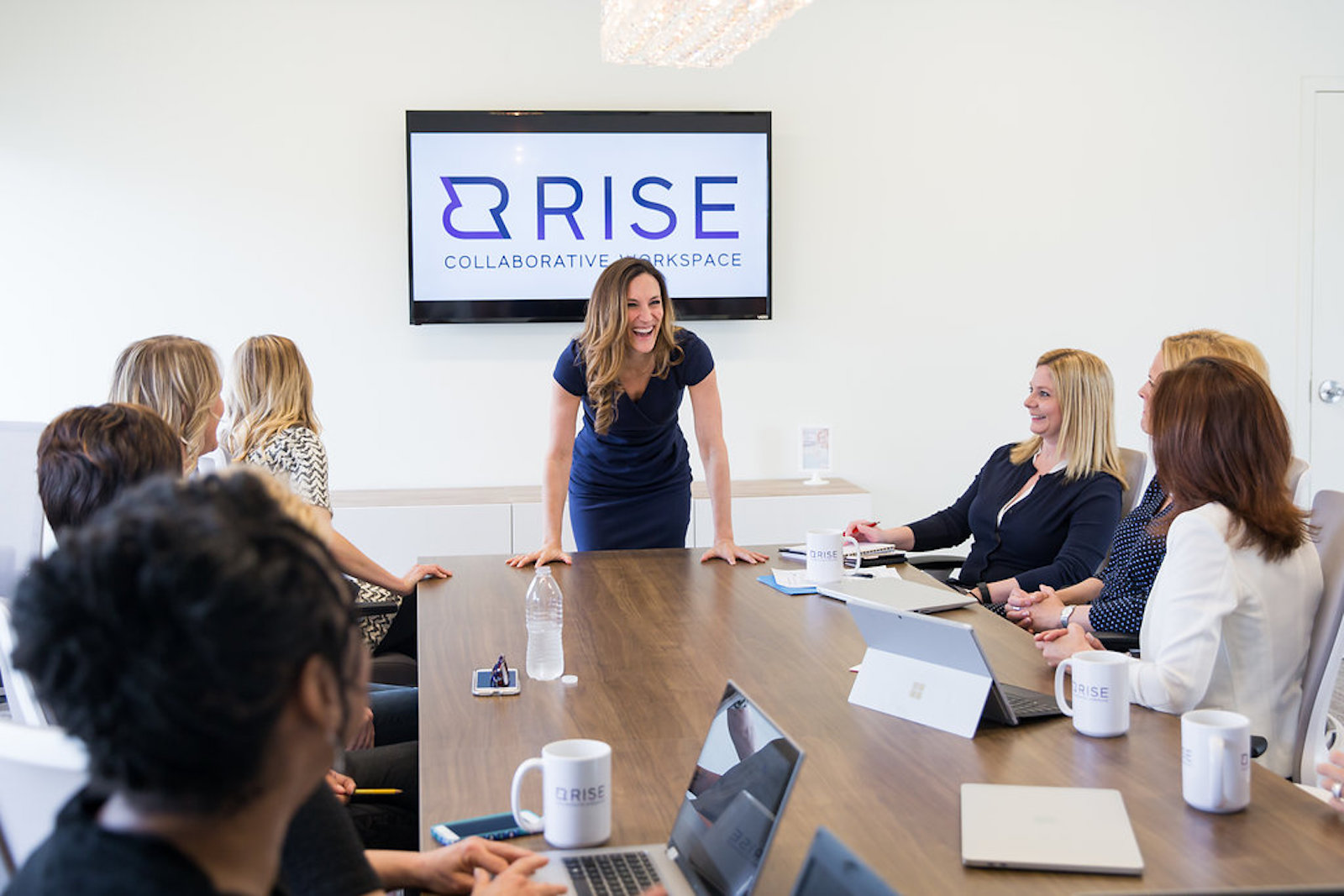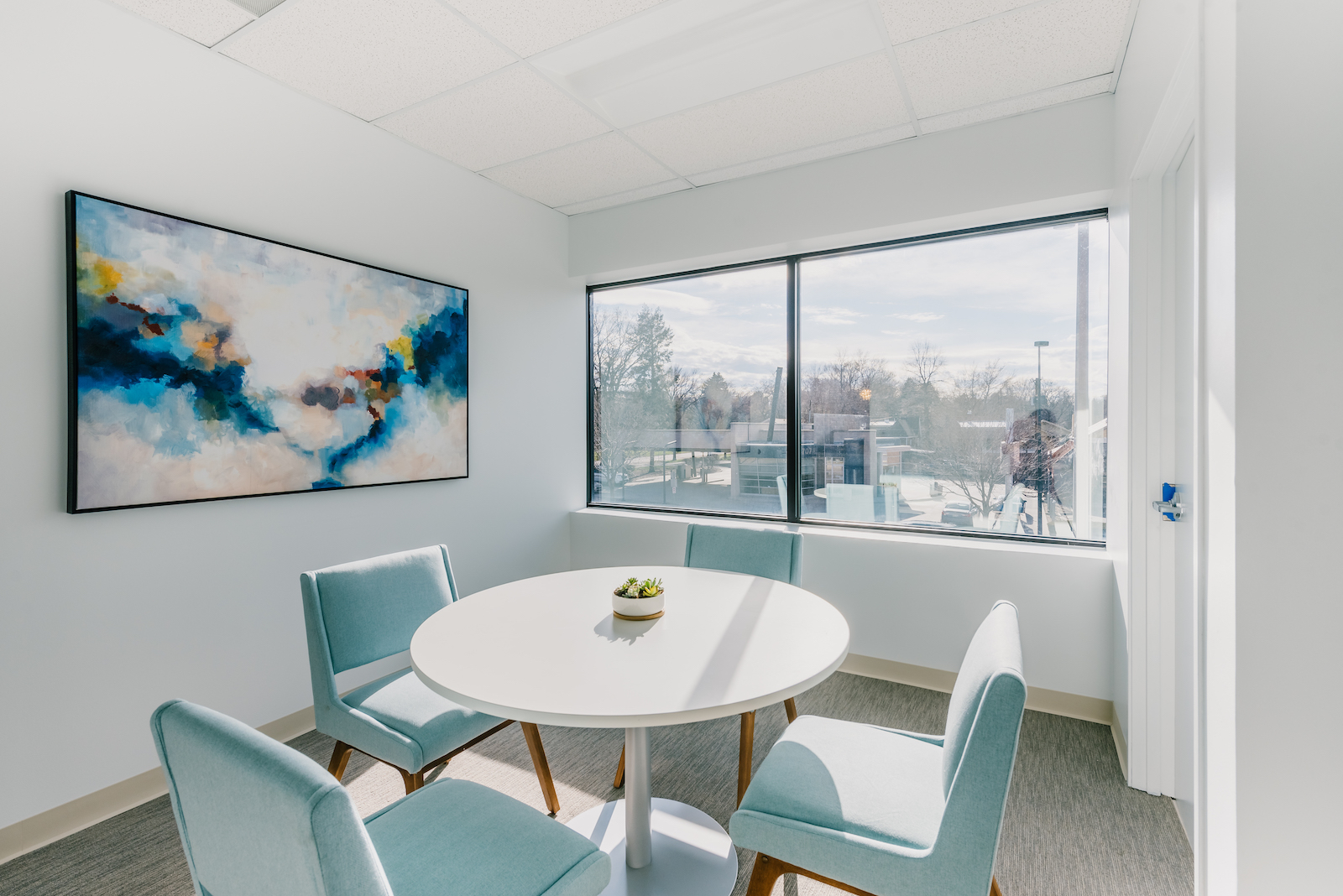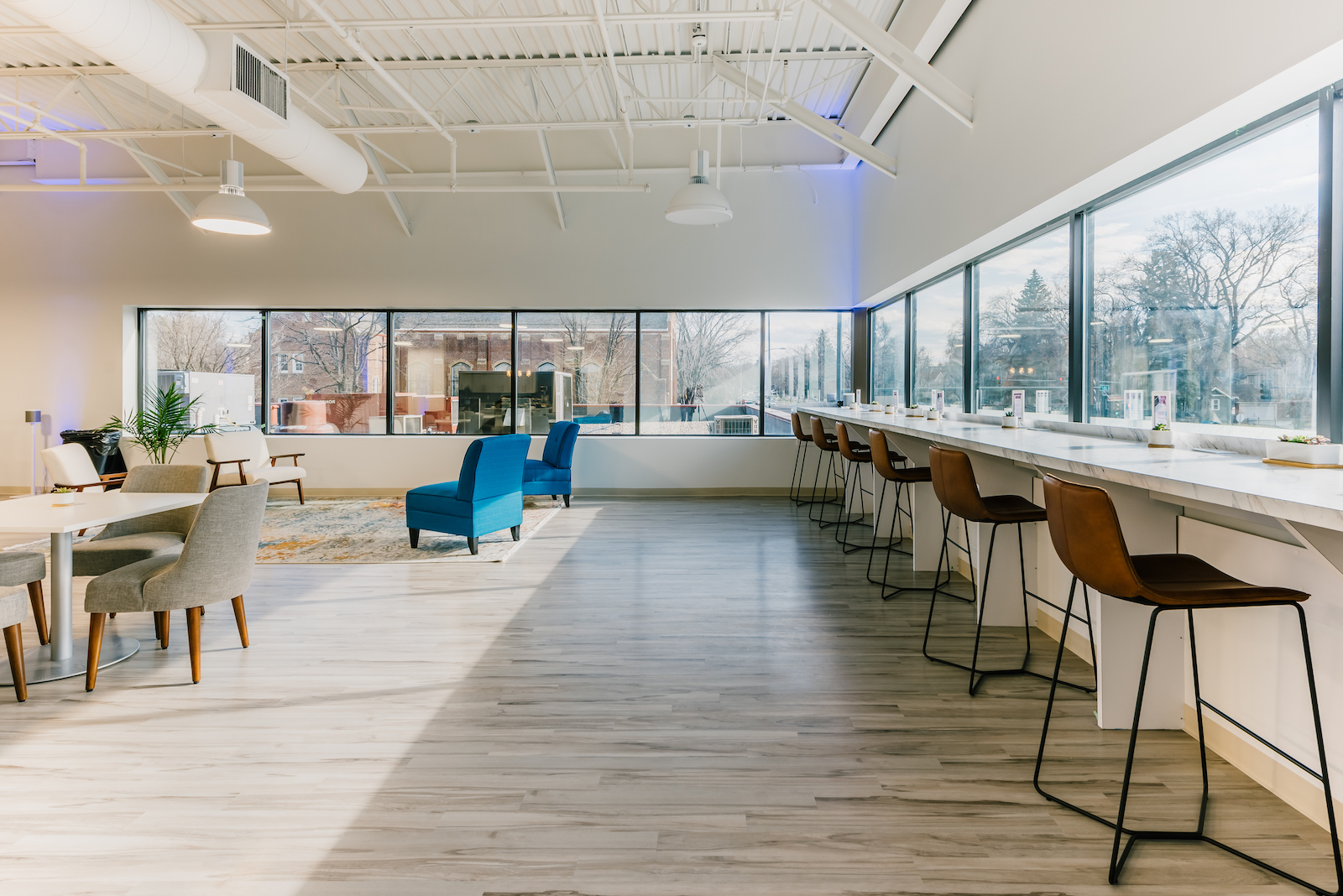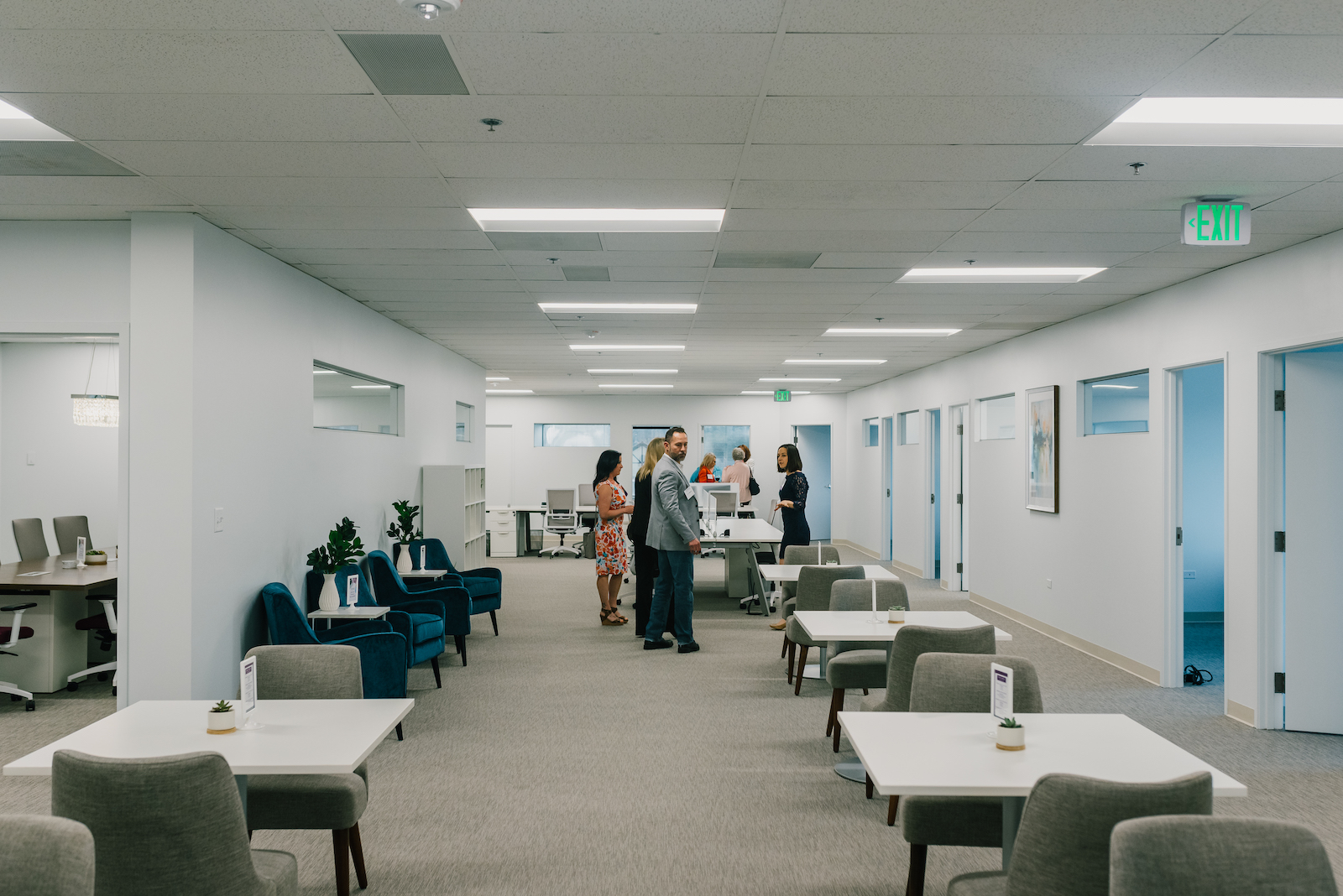The Local newsletter is your free, daily guide to life in Colorado. For locals, by locals.
As a Mile High City resident, you might (kindly) suggest to someone who’s thinking of opening a co-working space in Denver to rethink her plans. The city is already overrun with alternative offices, you might say. And if you’re Stacy Taubman, founder and CEO of Rise Collaborative Workspace, you would (also kindly) disagree.
The St. Louis-based “curated community and workspace” is launching its second location in Denver on April 17. Rather than coalesce various startups, Rise is focused on providing a working home to established, professional women—from lawyers and financial planners to digital marketing pros and counselors. “Where you go to work is very personal,” Taubman says. “Coffeeshops get old fast.”

While metro Denver certainly does have a preponderance of co-working-like options, there’s also a need for them: As we wrote in an in-depth look at Colorado’s gig economy last year, according to the U.S. Bureau of Labor Statistics, various “alternative work arrangements” comprise 10.1 percent of the country’s labor force—that would account to around 313,000 Coloradans.
While Rise will be among the first female-led and -focused workspace to open in the city (Women in Kind, which started operations in 2017, is the originator here), it surely won’t be the last. Earlier this year, Seattle-based co-working company the Riveter announced plans to expand to the Mile High City by mid-2019.
These offices are a boon for Denver, which is in the midst of an effort to better design the city for women. “If we build a city that supports women, it will then attract women to our workforce, it will help retain women in our workforce, and it will help grow women into our workforce. That’s an economic advantage,” Tami Door, CEO and president of the Downtown Denver Partnership, told 5280 earlier this year.
Taubman, a former high school math teacher who has two master’s degrees (in school counseling and administration), started along the path to what would become Rise in early 2013 after one of her students died by suicide. The tragedy inspired her to launch a tutoring and coaching company for young women called Girls Dreaming Big; she eventually left teaching to focus on the endeavor. But working out of her home and in cafes wasn’t productive for Taubman—nor were they ideal spaces for important meetings—and she was curious if other women with big dreams felt the same way. So, she interviewed 300 “smart, strong, successful women” in one year. Rise developed out of the consistent obstacles mentioned during those conversation: She would create a polished, sophisticated workplace that got them out of coffeeshops and into a space where they could collaborate and interact with other striving women.
Rise’s first location, in St. Louis, opened in January 2017. It now has 270 members. When deciding where to open her second workspace, Taubman noted the similarities between her hometown and Denver, including a welcoming population and a high number of female business owners. According to Taubman, there are around 72,000 women business owners in St. Louis with no employees; in Denver, there are closer to 88,000.
The Mile High City location already has around 70 committed founding members. The 10,000-square-foot office in the Hale neighborhood is situated on the second floor of the brick building that houses Snooze and next door to Trader Joe’s (convenient!). There’s free parking, too. What you won’t see at Rise: dogs or children in the office. (Rise partners with companies like Nanno to help members figure out their childcare needs, and the office phone booths have blinds so they can double as mothering rooms.) While women are the focus of Rise, Taubman notes that the office space is “female-focused but male friendly,” meaning men are always welcome.
Inside, the design is contemporary and chic and not overly feminine. Members can sign up for one of the 14 private offices (starting at $900 per month), a dedicated desk in the open space adjacent to the offices ($450 per month), or drop-in more sporadically ($180 to $275 per month). All members fill out an online application and then meet with someone on the Rise team for coffee to ensure a good fit. (Taubman and her team strive for the private offices to have “industry inclusivity,” so they do strongly consider line of work when reviewing Rise applications.)
Social memberships ($40 per month) are also available and buy access to weekly programming (organized by and for members), workshops, and social events. Every month has a theme—Brand Management or Empowerment and Confidence, for example—that members plan professional development events around.
Office space may be the visible part of Rise, but Taubman hasn’t forgotten about her initial “why”: helping young women succeed. That’s where her nonprofit, Rise Society, comes in. It connects high school girls with Rise members for mentorship, inspiration, and fun. “For us, it’s so much more than a workspace,” Taubman says. “There’s a bigger purpose as to why we’re all here.”











